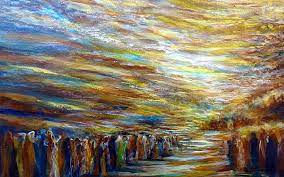WELCOMING SHABBAT
Shabbat is more than a day of refraining from worldly activity.
When experienced to its spiritual fullest, its holiness enlightens all other days of the week.
We invite you to enhance your Shabbat with these words of Torah.

Parashat Nitzavim: Two Levels of Teshuvah
- The Torah portion of Nitzavim is always read before Rosh Hashanah, a fitting time to speak about [teshuva], reflection and repentance
Emor Project » WELCOMING SHABBAT » DEVARIM / DEUTERONOMY » Nitzavim » Parashat Nitzavim: Two Levels of Teshuvah
Parashat Nitzavim: Two Levels of Teshuvah
“The Torah portion of Nitzavim is always read before Rosh Hashanah, a fitting time to speak about [teshuva], reflection and repentance…
Rabbi Moshe Cordevero, z”l writes that God’s character is unlike that of mankind. After all, if a human being is angry with his friend but later forgives him, he will not love his friend as intensely as he formerly did. God, however, considers a person who sins and repents to be greater than he was previously.
This is what is meant by the saying, ‘In a place where ba’alei teshuvah [one who returns to Torah and mitzvot] stand, complete tzaddikim cannot stand.’ For when a person repents and God returns the Shekhinah to him, it does not return to its former level of love. Rather, it spirals upward. This is what is meant by ‘He will return to have mercy on us’ (Mikhah 7:19). He will increase His mercy toward the Jews, fix them, and bring them closer – even closer than those complete tzaddikim who never sinned.
…
We should value even partial efforts to change and improve. The Sages praised even hirhurei teshuvah, the mere desire to improve.
Perhaps we are unable to fulfill our spiritual ambitions to the extent we like. Nonetheless, we should view our desire to change and improve as tools that purify and sanctify, leading us on our way to attaining complete spiritual elevation.”
Disclaimer:
The above excerpts/quotes are provided by Emor precisely as they appear in the original source, without any modifications or corrections to typos. Text within square brackets, as well as subtitles and bold formatting, are added by Emor for emphasis, clarification, or commentary, and the original content has not been changed.
